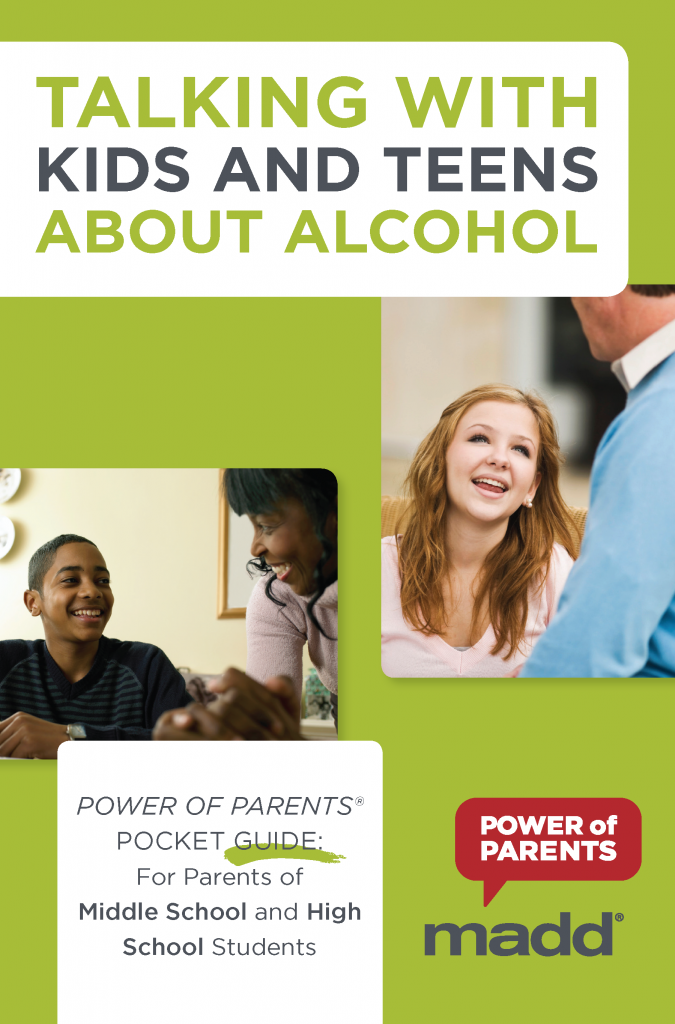April is Alcohol Awareness Month. Alcohol Awareness Month is a public health program increasing outreach and education regarding the dangers of alcoholism and issues related to alcohol – and is a perfect time to talk to your teen about the dangers of underage drinking.

The danger of alcohol abuse goes beyond college kids getting too drunk at parties. According to Alcohol.org, every year, 6,500 people aged 21 and under die from alcohol-related accidents, some of whom were not even drinking themselves. Alcohol use by people who do not know how to drink responsibly or are unaware of the risks contributes to higher rates of violence, sexual assault, and suicide.
Parents Do Make a Difference
Research shows that parents are an important influence on whether or not their son or daughter chooses to drink alcohol. Kids do care about their parents’ opinions. They tend to respond well to a positive parenting style.
In contrast, many studies show that authoritarian, overprotective, and permissive parenting can lead to negative outcomes.
- Employees who complete alcohol seller-server training are able to prevent sales to minors, recognize signs of intoxication, reduce liability, and effectively intervene in problem situations.
- State-Approved Training
- 100% online - No Classroom Attendance
- Download Certificate Upon Completion
Talking So Kids Will Listen
The following strategies will help you communicate most effectively:
- Listen. Allow your child to speak without interruption. Listen to what he or she says.
- Speak with respect and appreciation. Your child still values your approval.
- Communicate directly. Pick a time to speak when you can have each other’s undivided attention.
- Emphasize common goals. Remind your child that you are on their side.
- Avoid communication “stoppers.” These are single statements that shut down any response.
- Recognize conflict is natural. We all have different beliefs and values; therefore disagreement is a natural thing.
- Agree to step away. Agree to temporarily stop talking if things don’t go well.
- Use appropriate body language. How you position yourself physically while you
- talk can send important messages about your attitudes or express something you are
- not trying to convey.
- Avoid debate. If you find yourself debating, try suggesting that you both approach matters from a different angle.
April 21st is the National Day to talk with your kids and teens about alcohol.
Use the Resources from MADD to make that conversation a starting point for ongoing and deliberate talks that are proven to reduce your child or teen’s chance of drinking before 21. Have a potentially lifesaving conversation today.
MADD – POWER OF PARENTS® POCKET GUIDE – View/Print



























